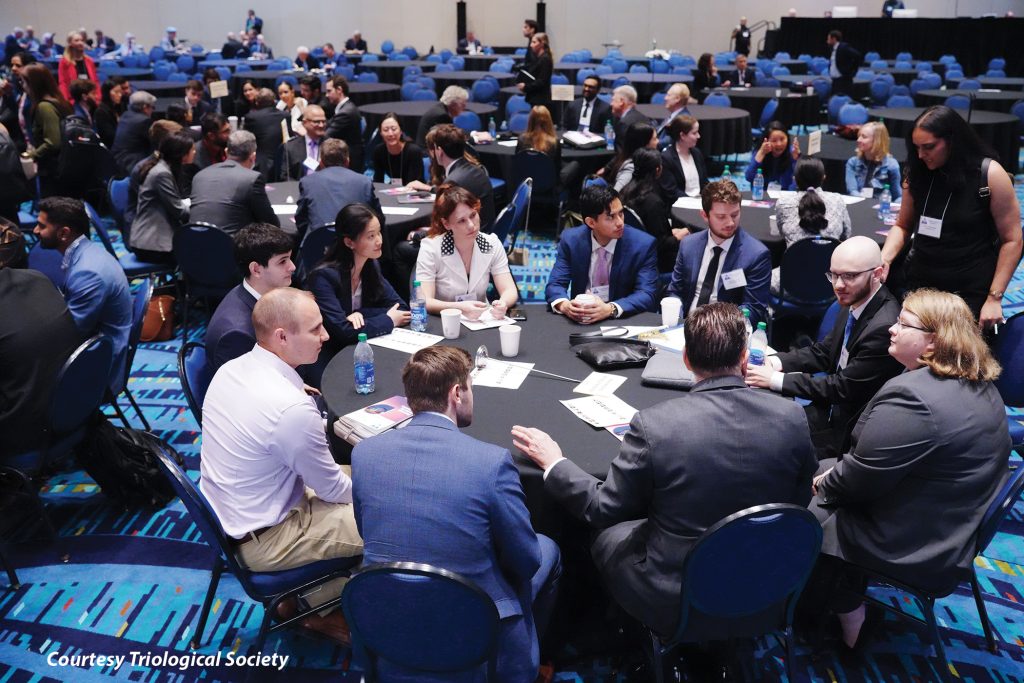field service associate professor–affiliate, department of otolaryngology–head and neck surgery. Her research and clinical interests are in pediatric dysphagia, with a focus on instrumental swallowing assessment and the clinical management of medically fragile infants and children with congenital and acquired airway and digestive anomalies. She has authored numerous publications and presented nationally and internationally on aspects of pediatric dysphagia.
Explore This Issue
March 2024Middle Section George Adams, MD, Young Faculty Award: Victoria S. Lee, MD, Chicago, Ill.
Dr. Lee is currently an assistant professor in rhinology, sinus, and skull base surgery at the University of Illinois, Chicago. As a specialist in sinonasal disease, her areas of expertise include nasal obstruction, allergy, sinusitis, nasal polyps, and sinonasal tumors. She specializes in minimally invasive endoscopic approaches to treat sinonasal, skull base, and orbital pathology. She’s also actively involved in rhinologic outcomes research, exploring the effects of social and environmental factors on sinonasal disease. She has received both peer-reviewed and industry funding for her research, including a Triological Society Career Development Award.
Binderup Prize: Michael G. Stewart, MD, MPH, New York, N.Y.
Michael G Stewart, MD, MPH, is professor and chairman of the department of otolaryngology–head and neck surgery at Weill Cornell Medical College and New York-Presbyterian Hospital/Weill Cornell, and senior associate dean for international affairs and affiliations at Weill Cornell. He has received three Distinguished Service Awards from the AAO-HNS and Presidential or Vice-Presidential Citations from four national societies. He is the former Editor-in-Chief of The Laryngoscope and a past president of the American Board of Otolaryngology–Head and Neck Surgery. He currently serves as executive vice president of the American Rhinologic Society.
Amy E. Hamaker is the editor of ENTtoday.
Challenges for Pregnant and Postpartum Otolaryngologists
Two sessions of speed networking were held during the meeting, with experienced otolaryngologists leading discussions and answering questions from the next generation of physicians and residents on a variety of topics, including academic career challenges/opportunities, women in otolaryngology career paths, young faculty research, making smart financial decisions, generalist or specialist, contract negotiation, resident/fellow research, and work/life integration.
